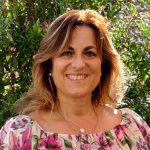
Between the 19th and the 21st of May in Porto (Portugal) took place the “Humanism in Surgery” Symposium. The last day was dedicated to The European Narrative Medicine Society (EUNAMES) Congress. We are happy to shere some of the speeches and slides of the participant.
Francesca Bracco, Italy.
The beauty of the meeting of ‘eternal scholars’ from various countries of Europe,
united by their passion for Narrative Medicine and Health Humanities
and by the conviction that the humanistic approach is not a ‘surplus
but an indispensable foundation of care:
this is what I retain in me after attending the first Eunames Congress from a distance, with wonder and gratitude.
In an interesting three days promoted by the Institute for Research and Innovation in Health, of the University of Porto, in collaboration with the international organisation ‘The Doctor as a Humanist’, the last day was reserved for the European Society of Narrative Medicine: a very significant context, given that the topic of the Symposium was ‘Humanism in Surgery’; a promising and extremely topical contamination, already in its sixth edition, between Evidence-Based Medicine and Narrative Medicine.
Given that the entire conference was animated by Professionals of recognised clinical expertise and was also very well attended by students interested in this topic often considered ancillary in the traditional course of study in Medicine, what warmed my heart on ‘our’ day last Saturday 21 May was to find, within a scientific Congress, a friendly and familiar gathering, which in a heartfelt and profound way highlighted the connections that animate the European network of Narrative Based Medicine and Medical Humanities. A ‘network always in fieri’ recently born, officially in 2020, from an idea agreed with SIMEN, the Italian Society of Narrative Medicine.
On Saturday 21, EUNAMES President Maria Giulia Marini, bubbly and knowledgeable, introduced the day’s topics, outlining Eunames’ founding reasons, its progress in the field of Applied Narrative Medicine, and introducing the various speakers, alternating with Susana Magalhāes, with her kind and welcoming manner, and Jonathan McFarland, with his contagious enthusiasm.
One by one, faces already known in the eagerly awaited monthly meetings – and therefore also pleasantly familiar to me – brought each one, respecting the timeframe and the need for synthesis to give voice to all, their testimonies on the state of the art and the steps taken, in a multidisciplinary context and truly open to the world; in a narrative of ‘We’, in essence, which has as its pillars inclusion and the search for collective and individual wellbeing, both of people suffering in body or mind, and of health workers.
To ‘feel part of’ a group that is diverse in terms of skills, roles, age, origin and culture is a value that has no equal, because it generates a sense of affiliation that makes one feel good and opens the horizons of the mind and heart.
After the report by Niels Fietje, spokesperson for the World Health Organisation (WHO), who emphasised the mandate that Europe entrusts to the Health Humanities, namely effective storytelling with equally measurable clinical and narrative skills, there followed a series of high-profile speeches, some of which I am particularly pleased to recall: Ourania Varsou, from the University of Glasgow, a professor of Anatomy capable of applying it to poetry, in her melodious and persuasive English; Marco Cordero, a cardiologist from the University Hospital of Barcelona, passionately committed to building new narrative pathways in his clinical field; and Nicoletta Suter, a trainer of the highest level and a wonderful person, whose presentation of the training project of Laboratory Facilitators of Narrative Medicine (SIMeN) I listened to with emotion: It may be that I too have participated in these courses up to the advanced level, but to observe such a significant Italian project explained to a European audience… how beautiful, and what a sense of belonging I felt!
What can we say, then, about the authority of John Launer, from University College London? His humility, despite his greatness matured in experience, study and research, is truly an authentic example of the style of collaboration and reciprocity that animates the rich network of ideas and stimuli of European Narrative Medicine.
No less fascinating was the talk by Professor June Boyce-Tillman, a musicologist from the University of Winchester (UK), a distinguished and engaging personality in her playing of ancient instruments and in testifying to the importance of Art Therapy: music and song, in her case, spirituality and storytelling, declined according to her smiling and unmistakable style, in the albeit delicate and dramatic field of End of Life.
The conclusion of such an intense morning was in the name of familiarity and sharing: some students read a short thought, showing genuine freshness and interest; the organisers took turns in an individual and choral greeting, where the satisfaction for such a rich meeting shone through; to finish, a nice group photo, as one does when one has been well together and feels close.
Happy trails, then, Eunames, see you at the next conference… step by step, together for a Narrative Health that generates all-round well-being!
